Related Research Articles
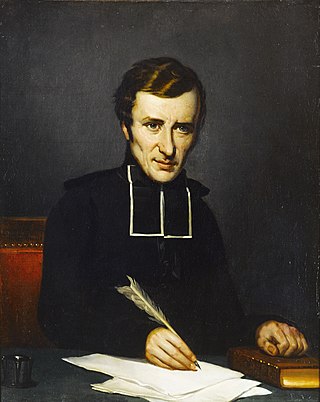
Félicité Robert de La Mennais was a French Catholic priest, philosopher and political theorist. He was one of the most influential intellectuals of Restoration France. Lamennais is also considered the forerunner of liberal Catholicism and social Catholicism.

Charles-Gilbert Romme was a French politician and mathematician who developed the French Republican Calendar.
The year 1837 in science and technology involved some significant events, listed below.

Gaston Bachelard was a French philosopher. He made contributions in the fields of poetics and the philosophy of science. To the latter, he introduced the concepts of epistemological obstacle and epistemological break. He influenced many subsequent French philosophers, among them Michel Foucault, Louis Althusser, Dominique Lecourt and Jacques Derrida, as well as the sociologists Pierre Bourdieu and Bruno Latour.
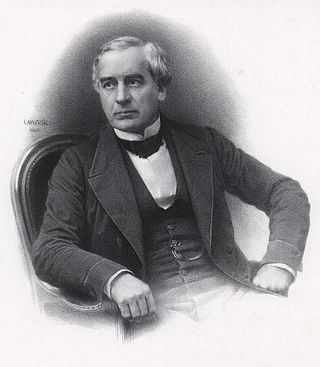
Jules Barthélemy-Saint-Hilaire was a French philosopher, journalist, statesman, and possible illegitimate son of Napoleon I of France.
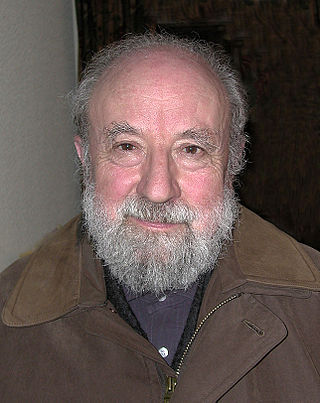
Michel Butor was a French poet, novelist, teacher, essayist, art critic and translator.
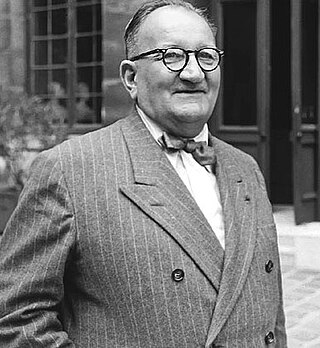
Étienne Henri Gilson was a French philosopher and historian of philosophy. A scholar of medieval philosophy, he originally specialised in the thought of Descartes; he also philosophized in the tradition of Thomas Aquinas, although he did not consider himself a neo-Thomist philosopher. In 1946 he attained the distinction of being elected an "Immortal" (member) of the Académie française. He was nominated for the Nobel Prize in Literature.
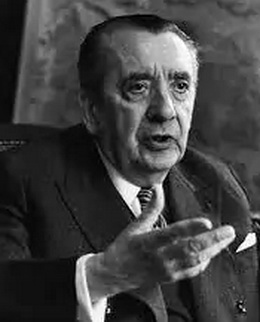
Ferdinand Alquié was a French philosopher and member of the Académie des Sciences Morales et Politiques from 1978.

Maurice Blondel was a French philosopher, whose most influential works, notably L'Action, aimed at establishing the correct relationship between autonomous philosophical reasoning and Christian belief.
Georges Politzer was a French philosopher and Marxist theoretician of Hungarian Jewish origin, affectionately referred to by some as the "red-headed philosopher". He was a native of Oradea, a city in present-day Romania. He was murdered in the Holocaust.

Lesbian, gay, bisexual, and transgender (LGBT) people in Luxembourg have the same legal rights as non-LGBT people. Partnerships, which grant many of the benefits of marriage, have been recognised since 2004. In June 2014, the Luxembourgish Parliament passed a law enabling same-sex marriage and adoption rights, which took effect on 1 January 2015. Additionally, discrimination on the basis of sexual orientation and "change of sex" in employment, healthcare and the provision of goods and services is outlawed, and transgender people are allowed to change their legal gender on the basis of self-determination.
Clément Rosset was a French philosopher and writer. He was a professor of philosophy at the University of Nice Sophia Antipolis, and the author of books on 20th-century philosophy and postmodern philosophy.
Joseph Galien OP was a Dominican professor of philosophy and theology at the University of Avignon, meteorologist, physicist, and writer on aeronautics.
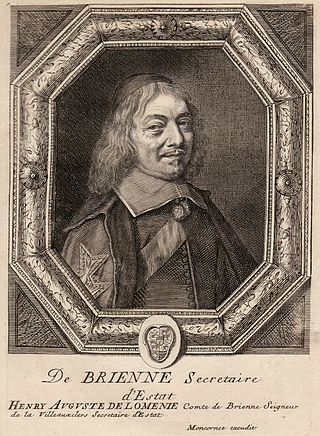
Henri-Auguste de Loménie, Count of Brienne, Seigneur de La Ville-aux-Clercs was a French politician. He was secretary of state for the navy from 1615 to February 1643, and then secretary of state for foreign affairs from 1643 to 1663 under Mazarin during the minority of Louis XIV. From the Loménie family, he was the son of Antoine de Loménie, secretary of state to Henry IV and a Huguenot convert.
Louis de Courcillon, known as the abbé de Dangeau was a French churchman and grammarian, best known for being the first to describe the nasal vowels in the French language. Originally a Protestant of Huguenot origin, he converted to Catholicism in 1668 after a trip to Poland. He was a younger brother of Philippe de Courcillon de Dangeau.

Pierre Trémaux was a French architect, Orientalist photographer and author of numerous scientific and ethnographic publications.

The Ministry of Public Works and Transport, formerly the Transport Ministry is a government ministry of Algeria. Its head office is in El Biar, Algiers.
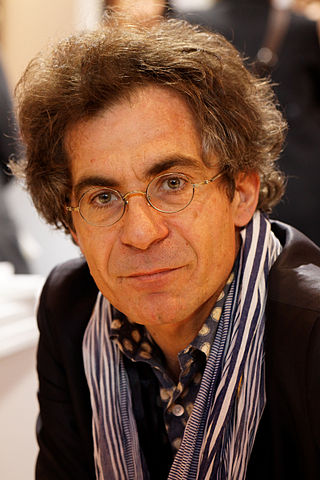
Étienne Klein is a French physicist and philosopher of science, born in 1958. A graduate of École Centrale Paris, he holds a DEA in theoretical physics, as well as a Ph.D. in philosophy of science and an accreditation to supervise research (HDR).
Hélène Metzger was a French philosopher of science and historian of science. In her writings she focused mainly on the history of chemistry. She was murdered in the Holocaust.

Paulette Destouches-Février was a French physicist, philosopher of science, and logician.